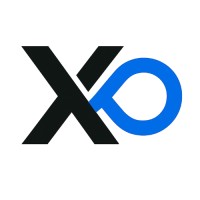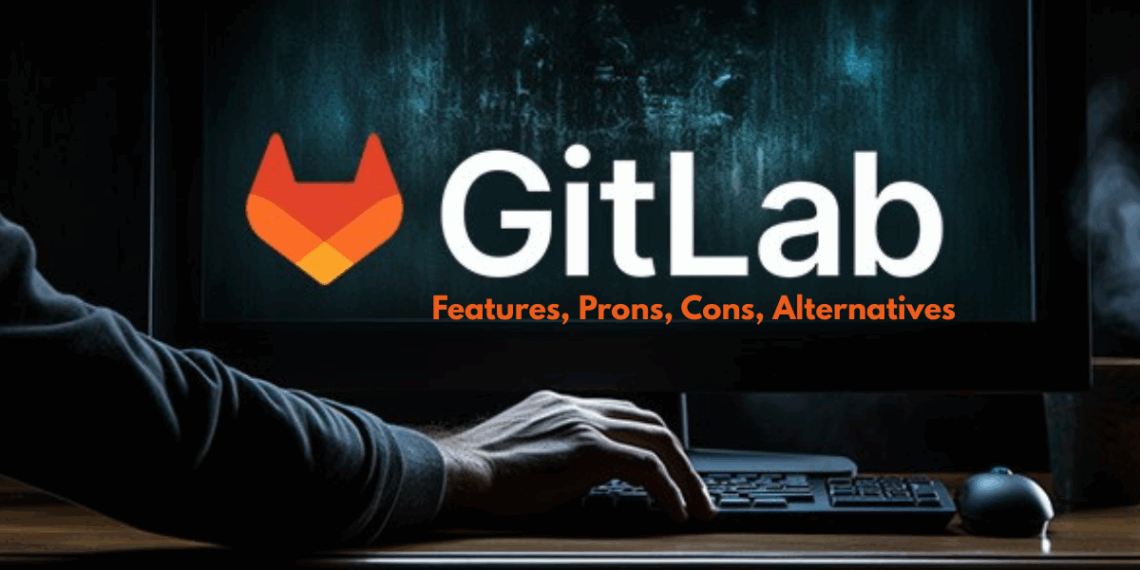In the high-stakes world of startups, choosing the right DevOps platform is not just a technical decision—it’s a strategic one that can accelerate your product journey or stall your momentum. Startups must operate at lightning speed, all while balancing lean budgets and building scalable foundations. 🚀✨
While well-known platforms like GitHub and Bitbucket offer strong options, GitLab promises something more: a truly unified, end-to-end DevOps solution that eliminates the complexity of juggling multiple tools. 🔧💪
In this article, we’ll go beyond surface-level features to explore GitLab’s real strengths and potential pitfalls for early-stage startups—equipping you with the insights you need to make a smart, future-proof choice. Read on if you’re serious about building a fast, secure, and scalable product from day one.
GitLab Overview
GitLab is a comprehensive, open-source DevOps platform that covers the entire software development lifecycle (SDLC) in a single application. Designed for teams of all sizes, GitLab integrates source code management, CI/CD pipelines, security scanning, and project management tools—all accessible via a unified interface. 💡📈
By offering a “single source of truth” for development, operations, and security activities, GitLab removes common bottlenecks that slow down software delivery. It empowers startups to build faster, deploy smarter, and secure earlier—without having to stitch together a patchwork of third-party tools. Whether you’re aiming to release MVPs rapidly or scale with enterprise-grade security, GitLab provides the flexibility and depth needed at every growth stage. If your startup is ready to streamline workflows and focus on innovation rather than infrastructure headaches, GitLab deserves serious consideration.
GitLab Key Features
📚 Source Code Management (SCM)
GitLab offers robust Git-based repositories with essential features like feature branching, merge requests, and granular access controls—perfect for startups building development discipline from day one.
📆 Integrated CI/CD Pipelines
GitLab’s built-in CI/CD system lets you automate builds, tests, and deployments directly from your repository, dramatically reducing setup complexity for early teams.
📅 Issue Tracking & Project Management
Manage bugs, features, and sprints within GitLab using Kanban boards, milestones, and linked issues—streamlining collaboration and traceability.
🔒 Security Scanning (DevSecOps)
Integrate security directly into development with built-in SAST, DAST, Dependency Scanning, and Secret Detection tools—although full access requires the Ultimate plan.
🛠️ Private Container Registry
Host Docker images natively with GitLab’s private registry, enabling seamless container-based development workflows without separate services.
🤝 Merge Request Collaboration
Simplify team code reviews and discussions using GitLab’s inline comments, approvals, and threaded conversations directly in Merge Requests.
🧪 Auto DevOps
For startups without deep DevOps expertise, Auto DevOps can automatically detect, build, test, and deploy apps—speeding up go-to-market timelines.

GitLab Pros and Cons
👍 Pros
- All-in-one DevOps platform (SCM, CI/CD, Security, PM)
- Generous free tier with unlimited private repositories
- Built-in container registry
- Integrated security scanning framework
- Scalability for growing teams
- Strong community and documentation support
- GitLab for Startups program offers Ultimate free for 1 year
👎 Cons
- Learning curve for advanced features
- Premium/Ultimate tiers are expensive ($29/$99 per user/month)
- Self-hosting requires heavy operational resources
- Potential feature overload for very basic needs
- Adapting to “GitLab Way” workflows may limit flexibility
Considering GitLab for Startups
📌 Primary Need? If your startup only needs basic source code hosting, GitLab’s core SCM features may suffice. But if you require a full DevOps lifecycle solution—from planning to production—GitLab’s integrated platform becomes a compelling option.
💰 Budget-Conscious? While GitLab’s free tier offers incredible value initially, as your usage scales, you may face significant costs. Carefully evaluate your roadmap to see when (and if) upgrading to Premium or Ultimate would be necessary.
🔗 Need Integrations? GitLab natively supports integrations with Slack, Jira, Kubernetes, and more. However, if your startup already relies heavily on a specific toolchain, verify that GitLab’s connectors and APIs will fit seamlessly without forcing major workflow changes.
👥 Team Size & Skills? Teams with DevOps-savvy engineers will quickly unlock GitLab’s full potential. Conversely, small or non-technical teams might struggle with setup and optimization without external support or additional learning investment.
📈 Scalability Focus? GitLab is built to scale with your startup, from a solo founder to large teams with complex workflows. Its tiered offerings and self-hosted options provide flexibility as your product, team, and infrastructure grow.
🔒 Security Requirements? Startups handling sensitive data or preparing for enterprise customers must prioritize security. GitLab’s Ultimate tier delivers full DevSecOps capabilities, but startups on tighter budgets may need to supplement the free features with external security tools initially.

GitLab Plans and Pricing
When it comes to choosing the right plan, GitLab offers multiple pricing tiers that cater to a variety of startup needs, from bootstrapped teams looking for free resources to scaling companies requiring advanced security and compliance capabilities:
| Plan | Monthly Price per User | Key Features |
|---|---|---|
| Free | $0 | Unlimited repos, basic CI/CD, issue tracking |
| Premium | $29 | Advanced CI/CD, Roadmaps, faster support |
| Ultimate | $99 | Full DevSecOps suite, compliance, portfolio mgmt |
Note: Additional charges may apply for extra storage or CI/CD minutes beyond Free tier limits.
GitLab Promo Code / Startup Discount Info
Eligible startups can apply to the GitLab for Startups program, offering free Ultimate tier access for 1 year for up to 5 users. 🌟 Generally aimed at companies with <20 employees and <$3M in funding, this offer can dramatically lower costs for early-stage teams.
Comparing GitLab with Alternatives
| Feature | GitLab | GitHub | Bitbucket (Atlassian) |
|---|---|---|---|
| Free Tier📦 | Strong | Strong | Strong |
| Integrated CI/CD⚙️ | Yes (GitLab CI/CD) | Yes (GitHub Actions) | Yes (Bitbucket Pipelines) |
| Integrated Security Features🔒 | Tiered (Ultimate) | Tiered (GHAS) | Basic only |
| Built-in Project Management🗂️ | Yes | Limited | Strong via Jira |
| Pricing Model💰 | $29/$99 per user | $4/$21 per user | $3/$6 per user |

FAQs
❓ Is GitLab easy for non-technical teams to set up? Basic repository setup is easy, but full CI/CD and security tools require DevOps knowledge.
❓ Does GitLab integrate with Slack, Jira, and others? Yes! GitLab supports many native integrations, and APIs allow for custom workflows.
❓ Are there hidden costs after the Free tier? Exceeding free CI/CD minutes or storage limits leads to charges; upgrading unlocks more capabilities.
❓ How good is GitLab’s mobile app? Decent for notifications and quick issue responses, but limited for advanced development tasks.
❓ Can startups self-host GitLab? Yes—GitLab CE is free to self-host, but it demands significant infrastructure management.
❓ Does GitLab offer customer support to Free users? Only community support; Premium and Ultimate tiers unlock formal support options.
❓ Is GitLab secure for hosting proprietary code? Yes, GitLab.com is SOC 2 Type 2 certified. Self-hosting security depends on your setup.
Final Thoughts
🚀 For startups aiming to consolidate DevOps tooling 🔧, boost development speed ⚡, and embed security early 🔐, GitLab is a powerful choice. It offers a robust, all-in-one environment that simplifies workflows, enhances team collaboration, and integrates critical security practices from the very start. The free tier alone covers core needs—such as source code management, CI/CD automation, and issue tracking—while the GitLab for Startups program unlocks advanced features like DevSecOps tools and portfolio management at no cost—perfect for early-stage growth. 💰
However, GitLab’s pricing at scale 📈 and operational complexity 🧩 means it’s not automatically ideal for every startup. Teams seeking only basic Git hosting without heavy automation or security requirements may find lighter tools more suitable and cost-effective. 🌍 Understanding your growth trajectory, technical capabilities, and long-term DevOps needs is essential before committing fully.
If you’re serious about building a scalable, secure, and efficient development pipeline—and want to set a strong foundation for future enterprise-grade operations—GitLab could very well be your startup’s launchpad to success. 🚀










